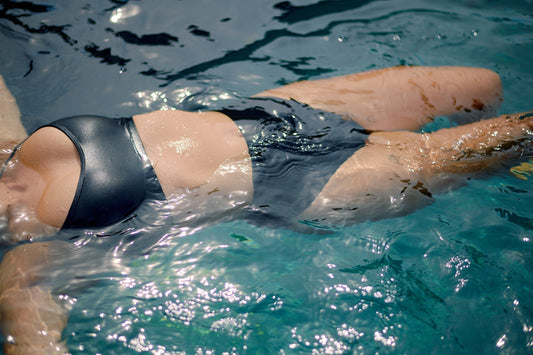
Free Reusables: The Next Step Towards Menstrual Equity
Madeleine ShawOne of the central challenges that we face as a values-based business is that it costs more to create high quality, truly sustainable products that last, which can make them hard to afford for some people who need them. Obviously, reusable menstrual products result in huge savings in the long term, but their higher upfront cost can be less accessible for some, particularly members of equity-seeking and marginalized groups like youth, lower income and gender non-conforming individuals.
One of the ways that Aisle supports access to quality reusable menstrual products is by supporting multiple menstrual equity initiatives. Every year we make significant donations to equity-seeking groups who would not otherwise have access to our products. You can check out our 2021 Impact Report for more details.
Making high-quality reusable menstrual products (such as period underwear, menstrual cups and washable pads) that use certified sustainable fabrics and paying fair wages to staff and contractors is not a simple undertaking. There is no such thing as high quality cheap reusables: it’s a contradiction in terms. What needs to change is who pays for them.
Free disposables: an essential first step
Thanks to period equity activism (we are huge fans of Period Equity co-founder Jennifer Weiss-Wolf, No More Secrets, the Period Purse, Bleed the North, Free Periods Canada, PERIOD. The Menstrual Movement and Period Promise, as just a few examples of groundbreaking leaders in this movement), free disposable pads and tampons are now becoming rightly understood as essential personal hygiene supplies, alongside toilet paper, hand soap and paper towels.
Provision of these essential supplies are unquestionably the responsibility of the institutions where the bathrooms are located. You would not be expected, for example, to bring your own toilet paper or soap to a public washroom: menstrual products are no different.
Our question is: If free disposable pads and tampons are now being funded for students, employees and others, why not reusables too?
Why free reusable products?
- Disposable pads and tampons are typically only provided in on-campus or in-office washrooms, therefore requiring someone to be on campus or in the office and able to find a gender-affirming bathroom stocked with products. But what happens when someone is not physically at school or in the office? What if the washroom is not aligned with their gender, or supplies have run out?
- Providing reusable products is easier. In case you were wondering about the practical challenges of managing inventory or stocking bathrooms with reusable products, we have that covered. Aisle’s innovative e-voucher system allows students or team members to privately choose the products that they need and have them sent directly to their homes. This ensures that they get exactly the products, styles and sizes that they need, without having to go anywhere or ask anyone for them.
- Reusables don’t just support menstrual equity: they can support sustainability and climate change goals. Most large institutions now have climate goals as part of their ESG (environmental, social and governance) reporting. Thanks to Aisle’s unique Life Cycle Assessment (LCA), Aisle provides its institutional partners with detailed information including GhG emissions, waste and energy savings that can be applied to their reporting. Furthermore, we also show how much money they save, as compared to comparable amounts of disposables - check it out below!
- Reusable menstrual products support mental health. This is thanks to the greater security in knowing that you have consistent access to a personal supply of your own cloth pads and liners, period underwear, and/or menstrual cups. If you know your supply of reusables are secure, then you don’t need to worry as much about access.
- Better comfort and improved user experience. In a last-second bathroom situation, users are not able to choose the optimal product for their needs, and may end up with something that either lets them down or is more than they need. Having your personal stash of quality reusables allows for size and style preferences to be met, thus ensuring a more comfortable and improved user experience that matches their need.
- Reusables cost less. When you are a university or civic body, for example, buying menstrual supplies for a large group of people over several years, disposable menstrual products cost significantly more than reusables. See the infographic below for an example. You can find more information here.
Want to increase access to quality reusables?
Students, employees and other leaders are increasingly calling on their managers and administrations to offer quality reusable menstrual products alongside disposable pads and tampons.
Aisle offers innovative partnerships that feature contactless product access (products are sent to people’s homes, alleviating the need for institutions to stock products or people to have to visit a bathroom or ask anyone for products), and also offer detailed environmental information (thanks to our LCA) that can be applied to ESG reporting. Learn more here, or book a 30-minute informational call with one of our team here.





